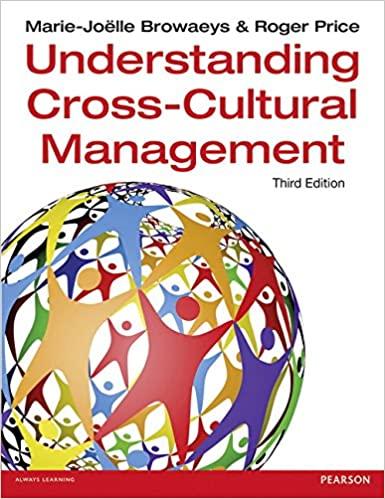It takes less than 10 minutes to drive from Avtovaz, maker of Lada cars, to its joint
Question:
It takes less than 10 minutes to drive from Avtovaz, maker of Lada cars, to its joint venture with General Motors. But to make the journey feels like crossing the border between the Soviet Union and the West 20 years ago.
On one side are grey and crumbling concrete factories, military-style security and unsmiling workers. An office block towers over the plant, with a top-floor restaurant reserved for managers.
On the other is a modern-looking factory, with low-key security, welcoming workers in blue overalls and a canteen where managers and workers eat at the same tables.
Workers in both places are Russian and live in the same city. But one factory is stuck in the Soviet era while the other is part of the modern world.
Inside, the differences do not lie in technology: Avtovaz has a new assembly line, equipped with the latest German and Italian machinery, to produce its slick-looking Kalina model. But as one foreign executive puts it: ‘What these guys do not understand is that it is not about a car, it is about people. Spending $5bn or even $10bn in the same environment will not make a good carmaker.’
The real distinctions between Avtovaz and its joint venture lie in management approaches and relations between managers and workers.
‘Here everything is different: the work culture, the discipline, the attitude,’ says Evgeny Berezin, assembly manager at GM-Avtovaz.
‘You can build the same factory as the one here, but it is all in the mind’, he adds.
He says all workers at GM-Avtovaz are encouraged to show initiative and make suggestions, which can be quickly taken on board. Any suggestion at Avtovaz usually gets lost in bureaucracy.
‘Avtovaz makes the same model for 10 years – almost unchanged. The car we make here today is different from the one we made a couple of years ago. I like working here because I can see the result of my work. People here have real responsibility.’
Vadim Klassen, who has worked in both plants, says: ‘If we learn from [foreign carmakers] we will catch up quickly. If we go down our own path, we never will. But you have to want to learn and know how to learn.’
Questions
1. Could you explain what the foreign executive means by saying: ‘What these guys do not understand is that it is not about a car, it is about people.’
2. Comment on the last paragraph of the case. Do you agree with Vadim Klassen?
Step by Step Answer:

Understanding Cross Cultural Management
ISBN: 9781292015897
3rd Edition
Authors: Marie Joelle Browaeys, Roger Price





